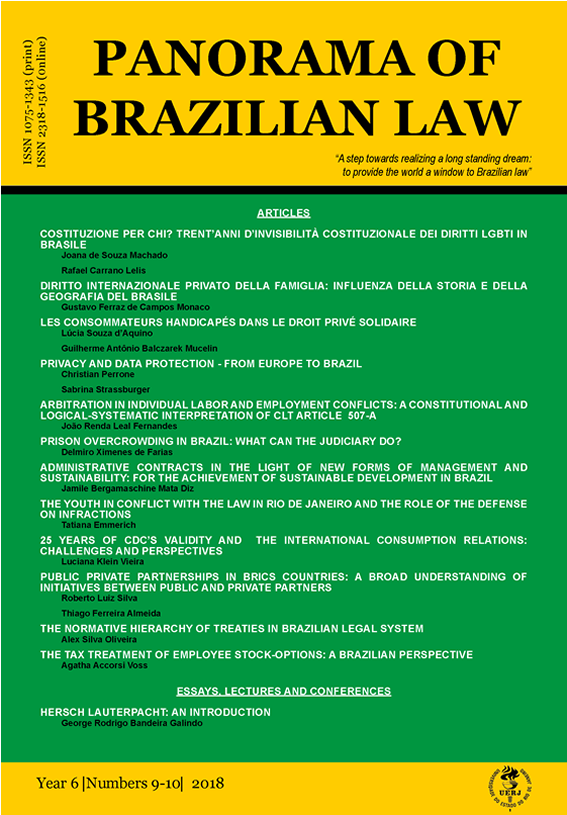The Normative Hierarchy of Treaties in Brazilian Legal System
Keywords:
International Law, Treaties, 1988 Federal Constitution, 1969 Vienna Convention on the Law of Treaties, Human RightsAbstract
Through the Federal Supreme Court appeals’ analysis (appeal 80.004/SE and appeal 466.343/SP) regarding treaties’ hierarchical position and enforcement in the Brazilian legal system, this paper indicates, from a historical and deductive method, how Brazilian doctrinal and jurisprudential contributions have caused more issues than solutions to determine where treaties belong in Brazilian system order (especially regarding the relationship between international law and domestic law). A particular topic about human rights treaties have been written to show the logical flaws in terms of hermeneutic perspective whether is considered human rights treaties as a constitutional block or a supralegality (supralegalidade) hierarchical position. In the last topic, it is discussed how 1969 Vienna Convention on the Law of Treaties has undeniably influenced Brazilian treaties’ hermeneutics.Downloads
Published
2019-09-09
How to Cite
Oliveira, A. S. (2019). The Normative Hierarchy of Treaties in Brazilian Legal System. PANORAMA OF BRAZILIAN LAW, 6(9-10), 245–261. Retrieved from https://www.e-publicacoes.uerj.br/pbl/article/view/36788
Issue
Section
Articles
License
Panorama of Brazilian Law employs Open Journal Access policies.
Authors are fully and exclusively responsible for their submissions.
Authors who publish with this journal agree to the following terms:
- Authors retain copyright and grant the journal right of first publication with the work simultaneously licensed under a Creative Commons Attribution-NonCommercial-ShareAlike 4.0 International License that allows others to share the work on a non-comercial basis with an acknowledgement of the work's authorship and initial publication in this journal and indicating if any changes were made. If you remix, transform, or build upon the material, you must distribute your contributions under the same license as the original.
- Authors are able to enter into separate, additional contractual arrangements for the non-exclusive distribution of the journal's published version of the work (e.g., post it to an institutional repository or publish it in a book), with an acknowledgement of its initial publication in this journal.

